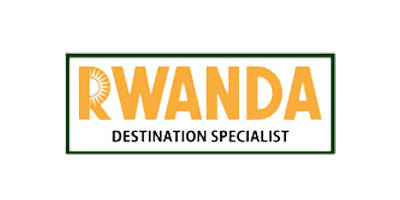Health in Uganda
Health advice and tips for traveling to Uganda
Vaccinations you need when traveling to Uganda
Yellow Fever vaccination certificate is mandatory requirement for visitors to Uganda coming from or have visited a high-risk country. If you are not sure whether your country is a yellow fever high risk as countries change often, take the shot and get the vaccination certificate to avoid being inconvenienced on arrival. It is also for your protection as yellow fever has become prevalent in many countries.
Vaccinations that are not mandatory but highly advised for your protection due to the risk of exposure include: hepatitis A and B, polio, meningitis, typhoid, cholera, measles, tetanus. If you will be handling rodents and animals in the cat family take a rabies vaccination as well. There are many stray rabid dogs wondering around, they are not pets and easily bite if approached please keep clear of them.
Malaria is big concern for travelers to Uganda, how to keep to safe
Malaria is caused by mosquito bites, specifically by a type of mosquito called anopheles mosquito, so not every mosquito bite gives you malaria. Malaria is one of the biggest killers in Africa but it is preventable and curable.
Protect yourself from mosquito bites by sleeping under a mosquito net at night.
Apply insect repellent in the evening and when going out for nature walks.
As mosquito bites may not be completely avoided, it is advisable to carry anti-malarial drugs that you can take pre your trip and daily and weekly during your trip. Visit your physician for advice and prescription on the best options. Some of the recommended antimalarial drugs include; daily Doxycycline or weekly chloroquine with daily paludrine. You may also carry a full dose/course of malaria treatment medication. Again, consult your physician for prescription.
You can carry a malaria Rapid Diagnostic Test kit which are available in almost every drug shop around Uganda.
Covid 19 in Uganda, what are the guidelines for travelers
There are no more covid 19 restrictions in Uganda.
No vaccination certificate required for one to travel to and from Uganda.
Uganda is still grappling with the HIV/AIDS epidemic, you need to be safe by:
HIV/AIDS is a sexually transmitted disease (STD) with no cure. Uganda is one of the countries highly affected by the virus/disease with an estimated 7.3% of the population carrying the virus.
Best protection against the virus is abstaining from sex.
But if you will have sex, it is best both persons take an HIV test to know the status of each other. Rapid test kits can be found in any nearby pharmacies (drug shop) wherever you are in Uganda. You can buy one at any time and even carry some for future use.
Using a condom is a must. And, avoid cheap condoms as many cheap condoms have been found to be counterfeits or weak that break during sex.
Other than HIV there are many other STDs that are prevalent in the population such as; Gonorrhea, Syphilis, Candida, Herps, etc…
Do you need a First Aid Kit when traveling to Uganda? Yes…
We advise you bring along a basic first aid kit or medical kit with some items such as bandages, cotton wool, plaster, a disinfectant, analgesia, thermometer, anti-histamine cream. Most of the medical supplies can be bought in Uganda.
Note that At Nature Trails East Africa we do provide a standard first aid kit for your tour.
Drinking water in Uganda – is tap water safe to drink?
Unlike in the western world where all tap water is treated and safe to drink, it is not the case in Uganda. The tap water in the cities in Uganda is actually treated at the source and could have been safe, but it gets contaminated by leakages and poorly maintained water pipes.
Please drink only bottled water. And if you don’t have access to bottled water, you should thoroughly boil the water, or sterilize the water using iodine or chlorine tablets.
You are also advised to brush your teeth with bottled water or purified water (boiled or sterilized).
Typhoid disease is the biggest risk to drinking unsafe water in Uganda.
Local Food, proceed with caution
Exercise maximum discretion when eating local foods, more so street foods. Hygiene of any eating place is key. Ask to be served steamy hot food.
All fruits should be thoroughly washed and peeled
All vegetables should be thoroughly washed
You are avoiding diseases; diarrhea, typhoid, cholera, and dysentery
Essential items to consider carrying
- Shades/sun glasses to protect from dust, bacteria and insects.
- Sunscreen to protect from sunburn
- Insect repellent
Responsible Travel Policy
You cannot get through a single day without having an impact on the world around you. What you do makes a difference, and you have to decide what kind of a difference you want to make. Our responsible travel policy allows guests to depart emotionally rich, more informed, more ecologically aware, and more appreciative of the natural resources, people and cultures.





